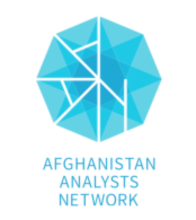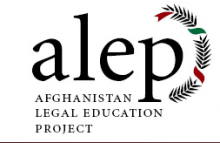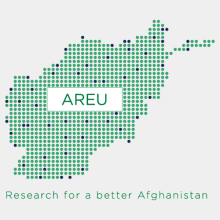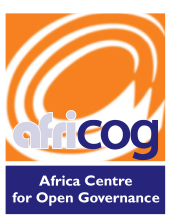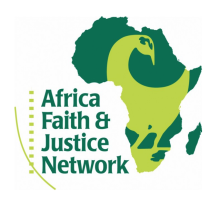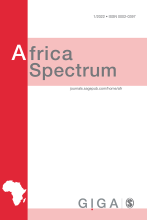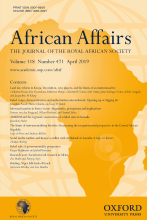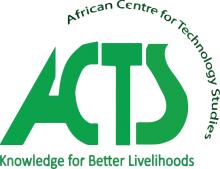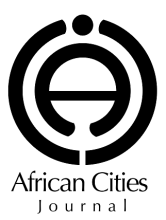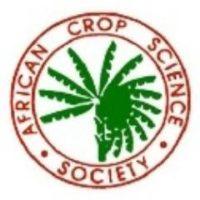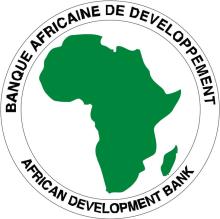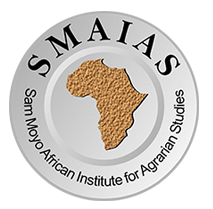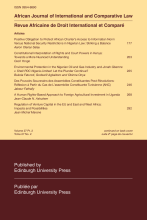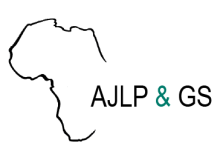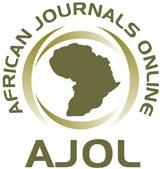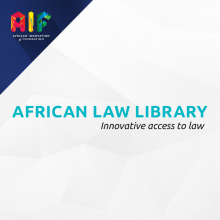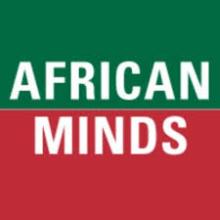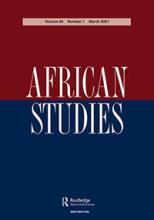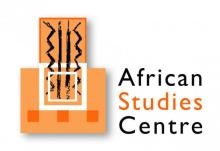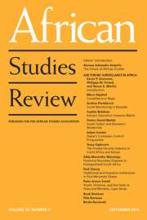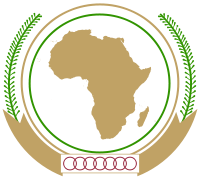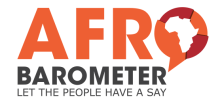The Land Library includes resources from more than 1,900 national and international information providers. Learn more about the organizations and institutions using the Land Portal to share their open-access research, data and stories.
Afghanistan Analysts Network
T
he Afghanistan Analysts Network (AAN) is an independent non-profit policy research organisation. It aims to bring together the knowledge, experience and drive of a researchers, analysts and experts to better inform policy and to increase the understanding of Afghan realities. It is driven by engagement and curiosity and is committed to producing analysis on Afghanistan and its region, which is independent, of high quality and research-based. We are committed to be bi-taraf but not bi-tafawut – impartial, but not indifferent.
Since its establishment in 2009, AAN’s publications have informed and influenced the work of Afghan and international policymakers, journalists, development workers and academics and others interested in Afghanistan and its region. AAN’s analysts are regularly asked to speak at conferences and briefings around the world, and frequently appear as commentators in the media.
AAN has a light institutional structure that includes an Executive Board with overall responsibility for AAN and its work, and a small team of analysts and researchers working from the AAN’s office in Kabul.
The Afghanistan Analysts Network is registered in Germany as an association (eingetragener Verein, e.V.) with registration number VR28652B, and as a non-profit research organisation at the Ministry of Economy in Kabul under registration number 341, dated 17.6.1388.
Afghanistan Legal Education Project
The Afghanistan Legal Education Project (ALEP) was founded in 2007 as a student-driven initiative under Stanford Law School’s Rule of Law Program. Since then, ALEP has published eight textbooks about Afghan law for Afghan audiences, and has an additional four forthcoming. In 2017, ALEP received a $3 million grant from the U.S. Department of State, to help ALEP continue its textbook-writing capabilities and support the BA-LLB (Bachelor of Arts and Law) degree program at the American University of Afghanistan.
Afghanistan Research and Evaluation Unit
The Afghanistan Research and Evaluation Unit (AREU) is a Kabul-based independent research think tank established in 2002 with the assistance of the international community in Afghanistan. AREU’s mission is to inform policy and practice by conducting high-quality, evidence-based research and actively disseminating the results, and to promote a culture of research and learning.
AREU achieves its mission through active engagement with policymakers, civil society actors, researchers, and the development assistance community in Afghanistan to promote their use of AREU’s research publications and its library, strengthening research capacity and creating spaces for analysis, reflection, and debate.
AREU is governed by a Board of Directors comprised of representatives of donor organizations, embassies, the United Nations and other multilateral agencies, Afghan civil society, and independent experts.
AREU’s core donor is the Swedish International Development Cooperation Agency (SIDA). Specific projects in 2019 are being funded by the European Union (EU), United States Institute of Peace (USIP), Norwegian Institute of International Affairs (NUPI), Overseas Development Institute (ODI-UK), School of Oriental and African Studies (SOAS) and Economic and Social Research Council United Kingdom (ESRC-UK), UN-Women, Save the Children, Royal United Services Institute (RUSI), and University of Essex.
AREU holds memberships in multiple international development consortiums including the RESOLVE Network, Global Challenges Research Fund (GCRF), Secure Livelihoods Research Consortium (SLRC) and A Conflict Sensitive Unpacking of The EU Comprehensive Approach to Conflict and Crisis Mechanism (EUNPACK).
AREU has been ranked as the top think-tank in Afghanistan by the University of Pennsylvania’s Global Go To Think Tank Index Report in 2017, 2018, and 2019. The report also ranked the organization as number 3 in Central Asia. In 2018, UK-based Prospect Magazine recognized AREU as the top International Social Think Tank.
Africa Centre for Dispute Settlement
The Africa Centre for Dispute Settlement (ACDS) works primarily within three thematic areas: social need, the Centre’s network and experience, and a business nexus to pressing social challenges and their solutions in Africa.
Africa Centre for Open Governance
AfriCOG is headed by an Executive Director accountable to a five-member Board of Directors. The secretariat consists of staff organised functionally across two main function areas. The first area is programmes. This branch consists of staff dedicated to developing, implementing and monitoring AfriCOG’s programmeactivities built around the core functions of: Research; Advocacy and Partnerships; and Dissemination and Linkages[1].
The second branch consists of staff dedicated to institutional management and is built around Administration, Finance and Information Communication Technology (ICT)[2]. However, these two teams work in synergy and interface to implement AfriCOG’s mission efficiently and effectively.
The Board of Directors is responsible for governance and providing strategic direction to AfriCOG. The Management is responsible for running the secretariat and is accountable to the Board through the Executive Director. This relationship is captured by the bold line linking the Board and the Management.
In terms of programme management, the Research, Advocacy and Partnerships, Dissemination and Linkages and ICT teams report to the Research Manager, while the Finance and Administration Team report to the Finance and Administration Manager both of who report to the Executive Director. All teams are jointly responsible to the management for the delivery of AfriCOG’s programmes. The thin lines linking various functions indicate a unitary relationship of all teams and not reporting lines.
Africa Faith and Justice Network
The Africa Faith and Justice Network (AFJN) is a community of advocates for responsible U.S. relations with Africa. AFJN stresses issues of peacebuilding, human rights and social justice that tie directly into Catholic social teaching. AFJN works closely with Catholic missionary congregations and numerous Africa-focused coalitions of all persuasions to advocate for U.S. economic and political policies that will benefit Africa’s poor majority, facilitate an end to armed conflict, establish equitable trade and investment with Africa and promote sustainable development.
AFJN works primarily with the executive and legislative branches of the U.S. government to advance our message of social justice, though we are also registered as a UN-DPI organization at the United Nations.
AFJN’s support base is primarily built on the Catholic missionary community in the USA and in Africa. AFJN is an extension of missionary witness in the difficult yet important arena of USA political decisions that affect African people.
Africa Public Service Delivery & Performance Review
Africa’s Public Service Delivery & Performance Review (APSDPR) is a journal in the niche area of Public Service Monitoring and Evaluation. The journal is a peer reviewed journal, aimed at the promotion and sharing of knowledge, skills and innovations in government and the wider Public Sector environment in South Africa and abroad. With a multi disciplinary outlook, the journal will stimulate service delivery and scholarly debate with a view to addressing myriads of service delivery and performance challenges being faced in government. The journal aims at providing an innovative approach to Monitoring and Evaluation scholarship through independent monitoring of implementable interventions around public service delivery and its expected outcomes. It thus envisages a role towards the turning point in bridging the gaps that exist between Public Service Delivery and the envisaged 'trickle down effects' on the targeted beneficiaries. Articles are invited in four broad themes, (1) Public Policy, Planning, Performance Monitoring and Evaluation, (2) Development Cooperation & Development Assistance Management, (3) Africa’s Regional Socio-Economic Integration, and (4) Agriculture and Food Security Policy.
Africa Research Institute
Africa Research Institute is an independent not-for-profit think-tank that was founded in February 2007. It is the only think-tank in the UK to focus exclusively on political, economic and social issues in sub-Saharan Africa. ARI strives to inform domestic and international policy making through publishing research and hosting interactive events. ARI’s mission is to draw attention to ideas or policies that have worked in Africa by highlighting and analysing best-practices in government, the economy and civil society. ARI encourages debate and challenges conventional wisdom in and about sub-Saharan Africa. It seeks to provide a nuanced and representative understanding of the region, as opposed to conventional “binary” depictions that often dominate the Western media. The organisation has published work on urbanisation, political and institutional reform, regional integration, health and agriculture, amongst other issues.
Africa Spectrum
Africa Spectrum is published by the GIGA Institute for African Affairs (IAA) in Hamburg since 1966. It is a peer-reviewed open access journal dedicated to original research on the politics, societies, and economics of sub-Saharan Africa. As a multidisciplinary journal, Africa Spectrum welcomes submissions employing a variety of theoretical and methodological approaches. This Journal is a member of the Committee on Publication Ethics (COPE).
African Affairs
African Affairs is published on behalf of the Royal African Society and is the top-ranked journal in African Studies. It is an interdisciplinary journal, with a focus on the politics and international relations of sub-Saharan Africa. It also includes sociology, anthropology, economics, and to the extent that articles inform debates on contemporary Africa, history, literature, art, music and more.
African Centre for Technology Studies
Our Vision: Knowledge for better livelihoods.
Our Mission: To strengthen the capacity and policies of African countries and institutions to harness science, technology and innovation for sustainable development.
Our Value Proposition
To conduct high quality research, policy analysis, capacity strengthening and outreach on applications of science, technology and innovation policies to sustainable development in Africa
To facilitate and convene evidence based policy dialogue and debate
To inform development policy and practice
To put critical issues of science, technology innovation on the Development Agenda
To provide independent and objective policy advice to African governments and agencies, regional economic communities and institutions, private sector, civil society and community actors and agencies.
A Brief History
The African Centre for Technology Studies (ACTS) is a pioneering development research think tank on harnessing applications of science, technology and innovation policies for sustainable development in Africa. ACTS is an Intergovernmental organization founded in 1988 to pursue policy oriented research towards strengthening the capacity of African countries and institutions to harness science and technology for sustainable development. ACTS envisions a sustainable economic, social and environmental future for Africa, through science, technology and innovation.
Article 3 of the Charter of ACTS, empowers the Organization to undertake capacity building, conduct research, provide advisory services and disseminate information on the policy aspects of the application of science and technology to sustainable development in Africa. It also requires ACTS to:
Promote capacity building in the developing countries in the field of policy analysis related to sustainable development.
Monitor international trends in science and technology, undertake technology assessment and forecasting and analyze the impacts of new technologies for purposes of providing policy options to African and other developing country governments.
Promote, enhance, inspire, study and conduct the building of the institutional framework requisite for the management, assessment, sustainable utilization and conservation of natural resources.
Foster the exchange of information and networking between the Centre and other governmental and private institutions and individuals that have similar or related interests at the local, national, regional and international levels, with particular emphasis on policy matters.
Promote, encourage, inspire and undertake technical cooperation activities between and within nations.
Since its founding, ACTS has been instrumental in enlarging the range of policy choices for sustainable development in Africa. Over the last quarter century, ACTS’ work has influenced patent (i.e. industrial property) legislation and policy (Kenya); environmental impact assessment standards (Eastern and Southern Africa); bio-energy and biofuels policy (Kenya, Eastern Africa, West Africa); agricultural policy, bio-diplomacy, biotechnology and biosafety (Africa-wide); climate change adaptation and mitigation (Africa-wide).
ACTS remains among the leading institutions working on sustainable development in Africa. In 2013, it was rated amongst the top Environment Think Tanks in Africa and the world. ACTS is also a past winner (1991) of the Justinian Rweyemamu Prize from CODESRIA (Africa’s Social Science Research Council) for its work in expanding the knowledge base for Africa’s development.
African Centre for the Constructive Resolution of Disputes
The African Centre for the Constructive Resolution of Disputes (ACCORD) is a South Africa-based civil society organisation working throughout Africa to bring creative African solutions to the challenges posed by conflict on the continent.
The principles underpinning ACCORD’s operations are the very ideals for which humanity has striven for centuries – peaceful resolution of conflict, human rights, and good governance.
— Nelson Mandela
ACCORD’s primary aim is to influence political developments by bringing conflict resolution, dialogue and institutional development to the forefront as an alternative to armed violence and protracted conflict. ACCORD specialises in conflict management, conflict analysis and conflict prevention. We intervene in conflicts through mediation, negotiation, training, research and conflict analysis.
Since 1992, ACCORD has played an integral role in conflict resolution activities across Africa. As an Institute operating in the field of conflict prevention, resolution, and management, ACCORD specifically intervenes through mediation, negotiation and training activities. For the past 23 years, the organisation has been building the capacity of Africa’s leaders to resolve conflict and to address the underlying political barriers to growth and stability.
The Institute’s interventions approach is recognised by the UN as a viable model for supporting peace. In September 2005, ACCORD became the first African NGO in history to address the UN Security Council.
ACCORD’s current five-year vision (2012–2016) is to promote dialogue towards building peaceful co-existence in an inter-dependent world. This vision seeks to bring to the fore the understanding that all people should enjoy basic freedoms, socio-economic development and human rights. It recognises that there is a myriad of common global challenges facing humanity today that require continued engagement, discussion and dialogue among key stakeholders in order to find durable solutions.
This vision informs ACCORD’s strategic intent to use its resources and programmes to continue to play a meaningful role in developing mechanisms and capabilities to respond to, manage and transform conflicts.
In doing so ACCORD continues to be guided by its objectives which include:
- To facilitate the introduction of, support for, and sustainability of conflict management interventions in conflict affected societies
- To utilise the analysis of conflict to conceptualise programmes in conflict prevention, peacemaking, peacekeeping and peacebuilding
- To enhance policy, research and practice in the field of conflict management and to contribute towards sustainable peace and development in Africa and beyond
African Cities Journal
African Cities Journal aspires to gather existing and future knowledge in the field of urban spaces in Africa through original research articles, as well as more prospective endeavours of theory and methodology.
African Crop Science Society
The African Crop Science Society (ACSS) was established in 1993 with overall goal of promoting crop production and food security in Africa. The general objectives embedded in the society’s constitution are to:
- foster and promote the study of crops in all its facets by creating opportunities for the free exchange
- foster liaison between the society and other bodies with common or similar interests both in Africa and abroad
- obtain and disseminate knowledge, information and ideas pertaining to crops by means of deliberations and publications
- promote the work and interests of members of the profession
- promote collaboration among the national and regional crop science societies in Africa
- encourage scientific training in crop science
- promote a general awareness of utilising, protecting and conserving the environment
- fulfill any other function that may be in the interests of crop science.
Generally, the activities of the society include: the convening of congresses, symposia, workshops and training courses; publication of the African Crop Science Journal; publication of regular Newsletters; and organising meetings.
African Development Bank
The overarching objective of the African Development Bank (AfDB) Group is to spur sustainable economic development and social progress in its regional member countries (RMCs), thus contributing to poverty reduction.
The Bank Group achieves this objective by:
- mobilizing and allocating resources for investment in RMCs; and
- providing policy advice and technical assistance to support development efforts.
In 2000, all multilateral development institutions have agreed on a same set of objectives, called the Millennium Development Goals (MDG). They are:
Millennium Development Goals
- Eradicate extreme poverty and hunger
- Improve maternal health
- Achieve universal primary education
- Combat HIV/AIDS, malaria and other diseases
- Promote gender equality and empower women
- Ensure environmental sustainability
- Reduce child mortality
- Develop a global partnership for development
African Farmers’ Association of South Africa
With the establishment of the African Farmers’ Association of South Africa (AFASA) in Boksburg on 11 and 12 April 2011, developing farmers now have a new, powerful voice. The launch of AFASA is the culmination of a yearlong consultation process with developing farmers country-wide to determine their need for an official structure that represents their interests.
The establishment of AFASA was a result of urgent court interdict lodged by some individuals at NAFU-SA, including Mr Joe Gondo, Mr Molefe Mokoene, Reverend Otto Mbangula and Ms Carol Motshegara to forbid farmers of South Africa to gather under the name “National African Farmers’ Union of South Africa (NAFU-SA)”. In response to this interdict the African farmers of South Africa immediately signed a declaration to launch the new association. “We are not a splinter group but we were forced by circumstances to find a way to address farmers’ issues as some individuals within NAFU-SA were stalling the process and frustrating farmers’ interests” said Mr Mike Mlengana the first president of AFASA. “Though the decision to launch AFASA was given at short notice due to the circumstances, farmers were very excited that at last they were liberated from misrepresentation by people who were never democratically elected by the farmers that they purported to represent,” Mr Mlengana said. NERPO played an instrumental role in the establishment of AFASA after the minister of AFASA after the Minister of Agriculture, Forestry and Fisherie, Ms Tina Joemat Pettersson, requested the organisation to intervene on behalf of developing farmers when their former representative body, NAFU-SA, faced liquidation and was clearly no longer representing the needs of developing farmers. Close to 3 000 developing farmers from all provinces in South Africa attended the two-day proceedings in Boksburg.
African Feed Research Network
Mar 1991, Gaborone (Botswana), by merger of: African Research Network for Agricultural Byproducts (ARNAB); Pasture Network for Eastern and Southern Africa (PANESA); West and Central African Animal Feed Research (WECAFNET). The merger was encouraged by International Livestock Centre for Africa (ILCA) and International Development Research Centre (IDRC) in order to rationalize research programmes on all aspects of animal feeding, thus avoiding overlaps, duplication and minimizing coordination costs. Statutes adopted by 2nd General Assembly, 9 Dec 1993, Harare (Zimbabwe). No activities reported since 2008.
Aims
Unite efforts of scientists working on all aspects of animal feeding research in enhancing animal feeding technologies generation for increasing animal production in sub-Saharan Africa; strengthen national research programmes so as to develop solutions to constraints of inadequate livestock feed supplies and poor quality feeds.
Source: UIA Open Yearbook
African Institute for Agrarian Studies
The Sam Moyo African Institute for Agrarian Studies was established as an independent Trust in 2002 to fulfil a need that had been observed through research, for a policy institute focused on addressing Africa's land and agrarian questions. The AIAS interacts with various organisations and countries to assist them in developing capacity for policy formulation and research. It also facilitates policy dialogue among governments, academics, civil society and others on land and agrarian development, especially the land rights of marginalised social groups.
AIAS is a regional organisation that seeks to influence land and agrarian reform policies through multidisciplinary social science research, policy dialogues, training, networking and information dissemination. The main focus of the AIAS is to mediate in the policy making processes so as to enhance rural livelihoods through an improved policy framework.
African Journal of International and Comparative Law
The African Journal of International and Comparative Law re-started publication with EUP in 2005, with the approval of the African Society of International and Comparative Law. The eminent Editorial Board continues as previously, with members from international institutions in Geneva and from universities in Africa, the UK and the US. The journal continues its tradition of providing invaluable refereed material in both international and comparative law on a pan-African basis. It includes articles on public or private international law, either in English or French, as well as a section on recent developments relevant to the continent.
African Journal on Land Policy and Geospatial Sciences
African Journal on Land Policy and Geospatial Sciences is a journal specialized in publishing research activities carried out in the field of geo-spatial sciences and land governance. It aims to encourage innovation, promote the exchange of knowledge and scientific outcomes related to its themes. The journal's target community is made-up of researchers, professors and professionals working in the newspaper field. The journal also aims to promote scientific articles and productions at the African, regional and global levels. The institutions as well as the international universities will enrich by their contribution the scientific level of the journal. The journal can, among other things, deal with professional themes and good practices in the field of land governance.
African Journals Online
African Journals OnLine (AJOL) is the world's largest and pre-eminent collection of peer-reviewed, African-published scholarly journals.
Historically, scholarly information has flowed from North to South and from West to East. It has also been difficult for African researchers to access the work of other African academics. In partnership with hundreds of journals from all over the continent, AJOL works to change this, so that African-origin research output is available to Africans and to the rest of the world.
AJOL is a Non-Profit Organisation based in South Africa.
African Land Policy Centre
The African Land Policy Centre, formerly called the Land Policy Initiative (LPI), is a joint programme of the tripartite consortium consisting of the African Union Commission (AUC), the African Development Bank (AfDB) and United Nations Economic Commission for Africa (ECA). Its purpose is to enable the use of land to lend impetus to the process of African development. The programme is governed by a Steering Committee that meets periodically, while a joint secretariat implements day to day activities. The secretariat is assisted by an African Taskforce on Land.
After having developed the Framework and Guidelines (F&G) on land policy in Africa, and received the mandate from the African Union (AU) to use it in support of national and regional land policy processes, the LPI is now moving towards assisting AU Member States in developing or reviewing their land policies as well as in implementing and evaluating these policies.
Vision
A peaceful and prosperous Africa realized through equitable access, efficient and sustainable utilization of land.
Mission
To ensure all land users have equitable access to land and security of all bundles of land rights, by facilitating effective partnerships, dialogue and capacity building for participatory and consultative land policy formulation and implementation, as well as efficient and transparent land administration in both customary and statutory jurisdictions.
Goal
To assist Member States in the implementation of the declaration on land issues and challenges in Africa in accordance with the Framework and Guidelines on land policy in Africa in order to achieve socio-economic development, peace and security, and environmental sustainability.
Current targets of the initiative include:
Twenty Member States developing land policies and adopting implementation tools that enhance women’s secure access to land; and recognize the legitimacy of Africa’s customary based land rights and institutions by 2020
Ten Member States putting in place transparent, efficient and cost-effective Land administration systems which are reflective of Africa’s unique realities by 2020
African Law Library
The African Law Library (ALL) is a “one-stop-shop” online portal and database that offers free legal resources for Africans.
Developed in 2012, the African Law Library (ALL) is a “one-stop-shop” online portal and database that offers free legal resources for Africans from multi-disciplinary sectors, including business, academia, government and civil society.
Its key functions include the collection and digitization of African laws, court decisions and secondary literature.
The online library offers:
- Searchable, downloadable, printable legal resource material with free access for all
The platform also:
- Promotes research, exchange and comparative analysis on the “African corpus iuris”, including customary law
- Supports the continent’s regional integration agenda
- Promotes transparent processes in law and governance
- Collaborates with bodies of knowledge and growing the partnership base to build a connected, meaningful online resource
African Minds
African Minds is an open access, not-for-profit publisher. African Minds publishes predominantly in the social sciences and its authors are typically African academics or organisations. African Minds offers innovative approaches to those frustrated by a lack of support from traditional publishers or by their anachronistic approach to making research available. At African Minds, the emphasis is less on the commercial viability of publications than on fostering access, openness and debate in the pursuit of growing and deepening the African knowledge base.
African Population and Health Research Center
APHRC is committed to generating an Africa-led and Africa-owned body of evidence to inform decision making for an effective and sustainable response to the most critical challenges facing the continent. Our mandate is to generate and support the use of evidence for meaningful action to improve the lives of all Africans through three integrated programmatic divisions: research, that emphasizes health and wellbeing; research capacity strengthening to deepen
the skills of African scholars working on the continent; and policy engagement and communications to support greater influence of evidence in policy – and decision-making across sub-Saharan Africa.
APHRC has been an independent, 501(c)3 registered institution since 2001, emerging from a fellowship program of the Population Council started in 1995. Since its inception, the Center has grown from a handful of staff to more than 130 scholars and professionals representing more than a dozen countries across Africa, and increasing our annual operating budget from under US$1 million at inception to over US$10 million since 2012.
We have a deeply ingrained conviction that prudent financial management and strong internal control systems provide a solid foundation for original, creative, innovative and sustained engagement in research and policy advocacy.
African Studies
African Studies is an international interdisciplinary journal which aims to publish high quality conceptual and empirical writing relevant to Africa. Significant disciplines include but are not limited to: anthropology, critical race, gender and sexuality studies, geography, history, literary, cultural and media studies, sociology, and politics.
The journal welcomes critical investigations of social dynamics in Africa, grounded in relevant illustrative, qualitative, evidentiary approaches. The journal encourages innovative contributions from established and new scholars that not only reflect current conceptual thinking but also draw upon Africa in order to question received theoretical and methodological paradigms. With an active editorial board that encompasses scholars from a variety of disciplines based at both South African and international universities, the journal seeks to foster an inter-disciplinary and global conversation from, with and about Africa.
African Studies Centre Leiden
Mission statement
The African Studies Centre Leiden is a knowledge institute that undertakes research and is involved in teaching about Africa and aims to promote a better understanding of and insight into historical, current and future developments in Africa.
The institute is located in the Pieter de la Court Building of the Faculty of Social Sciences of the University of Leiden.
Main objectives:
- To promote and undertake scientific research on Africa;
- To function as a national centre in the field of African studies and to contribute to education and teaching in these studies;
- To promote the dissemination of knowledge and an understanding of African societies in the wider public sphere.
African Studies Review
African Studies Review (ASR) is the principal academic and scholarly journal of the African Studies Association. ASR appears three times per year in April, September, and December, and is one of the many benefits of membership. The mission of theASR is to publish the highest quality articles, as well as book and film reviews in all academic disciplines that are of interest to the interdisciplinary audience of ASA members.
African Union
On 9.9.1999, the Heads of State and Government of the Organisation of African Unity issued a Declaration (the Sirte Declaration) calling for the establishment of an African Union, with a view, inter alia, to accelerating the process of integration in the continent to enable it play its rightful role in the global economy while addressing multifaceted social, economic and political problems compounded as they are by certain negative aspects of globalisation.
The main objectives of the OAU were, inter alia, to rid the continent of the remaining vestiges of colonization and apartheid; to promote unity and solidarity among African States; to coordinate and intensify cooperation for development; to safeguard the sovereignty and territorial integrity of Member States and to promote international cooperation within the framework of the United Nations.
Indeed, as a continental organization the OAU provided an effective forum that enabled all Member States to adopt coordinated positions on matters of common concern to the continent in international fora and defend the interests of Africa effectively.
Through the OAU Coordinating Committee for the Liberation of Africa, the Continent worked and spoke as one with undivided determination in forging an international consensus in support of the liberation struggle and the fight against apartheid.
Afrobarometer
Afrobarometer is a pan-African, non-partisan research network that conducts public attitude surveys on democracy, governance, economic conditions, and related issues in more than 35 countries in Africa. Through our findings, ordinary citizens can have a voice in policy-making processes that affect their lives.
It is the world’s leading research project on issues that affect ordinary African men and women. It collects and publishes high-quality, reliable statistical data on Africa which is freely available to the public.
It is carried out through a partnership of the Ghana Center for Democratic Development (CDD Ghana), Institute for Justice and Reconciliation (IJR) in South Africa, Institute for Empirical Research in Political Economy (IREEP) of the African School of Economics at Abomey Calavi in Benin, Institute for Development Studies (IDS) at the University of Nairobi, the Institute for Democracy, Citizenship and Public Policy in Africa at the University of Cape Town and the Department of Political Science at Michigan State University.

